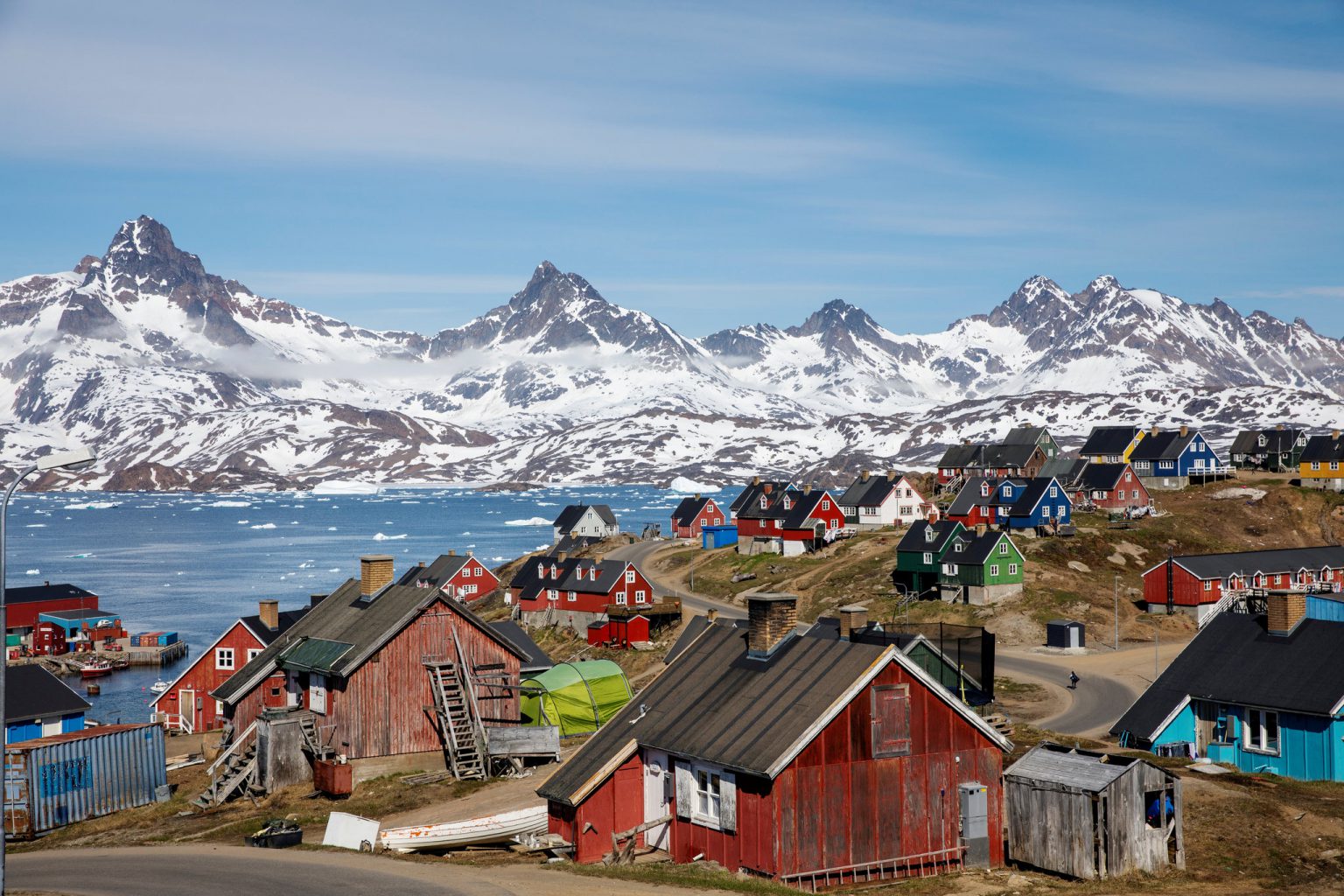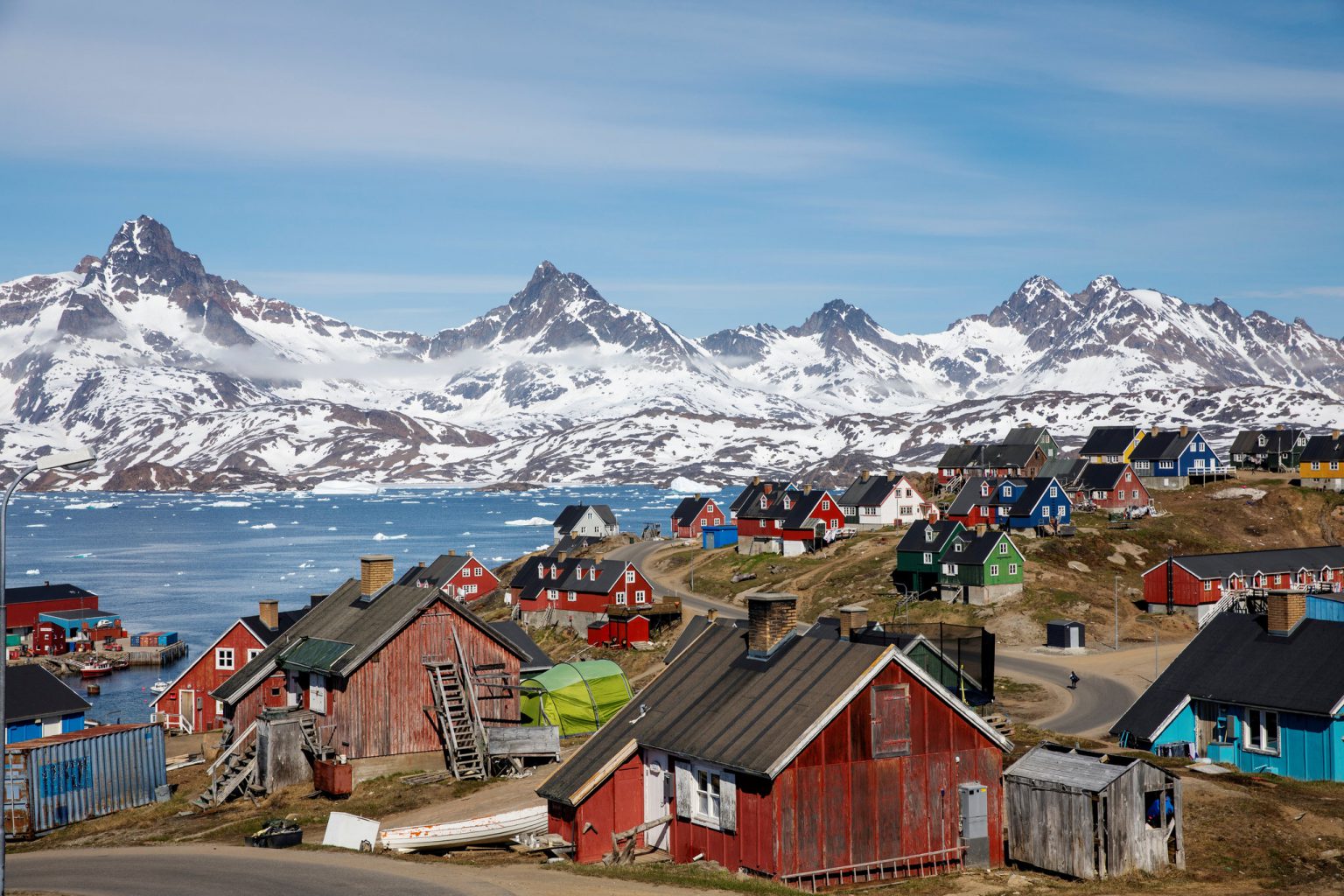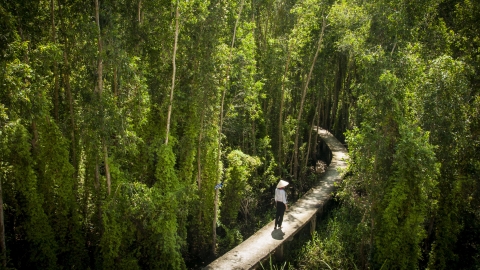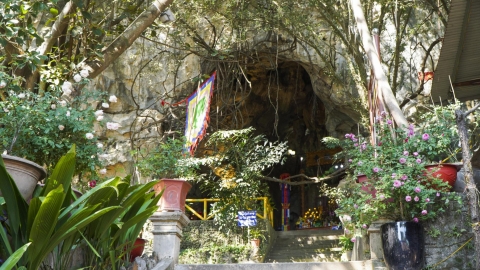Greenland is an autonomous country within the Kingdom of Denmark. Geographically, it is an Arctic island nation connected to the North American mainland, but historically Greenland has close ties to Europe. Greenland is surrounded to the southeast by the Atlantic Ocean, the Greenland Sea to the east, the Arctic Ocean to the north, and Baffin Bay to the west.
Approximately 81% of Greenland's surface is covered by ice, known as the Greenland ice cap. The weight of the ice compresses the central landmass of the continent, forming a basin that lies more than 300 meters below sea level. Almost all of Greenland's population lives along the glacial fjords in the southwest of the main island, where the climate is more temperate.
Summer in Greenland
Greenland does not have four distinct seasons, but only two main seasons: a long winter (from October to May) and a short summer (from June to September).
Greenland's summer arrives late and passes very quickly. The weather only really changes significantly starting in June. At this time, the ice and snow begin to melt and temperatures rise considerably.
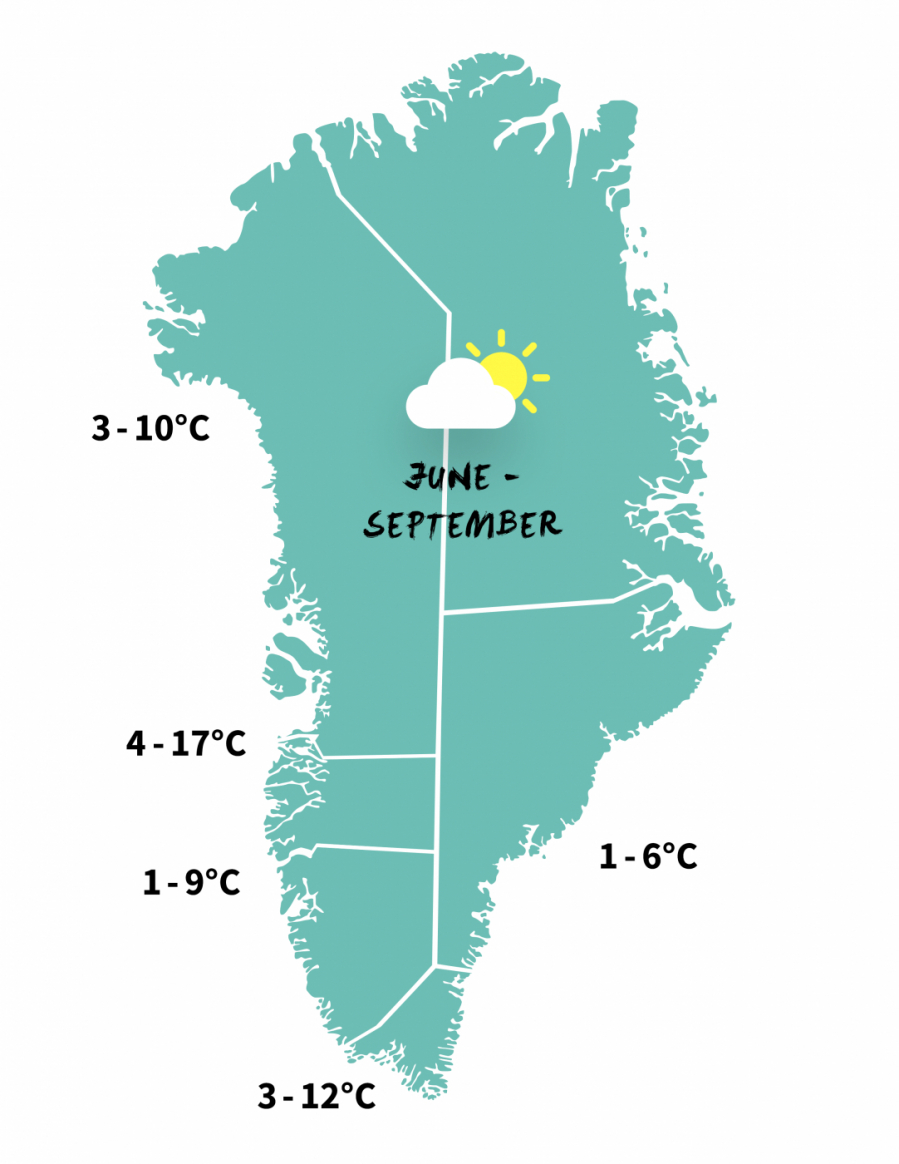
Greenland is a vast landmass, so temperatures vary widely across regions, with warmer climates towards the south. Temperatures in Greenland are generally quite low; however, the air is drier in summer, providing a warmer feeling. The climate here is quite unpredictable, constantly changing from day to day and difficult to pinpoint precisely.
The most noticeable thing about summer in Greenland is the transformation of the natural landscape. The mountain peaks change from white to gray, then gradually take on the green of vegetation. Glaciers begin to melt, flowing down waterfalls into fjords. Large icebergs break away from the glacial bays and drift out to sea. Flowers bloom, and animals emerge from their wintering grounds to enjoy the warm sunshine. Birds fill the skies, and the calm seas become more lively with the return of fish.
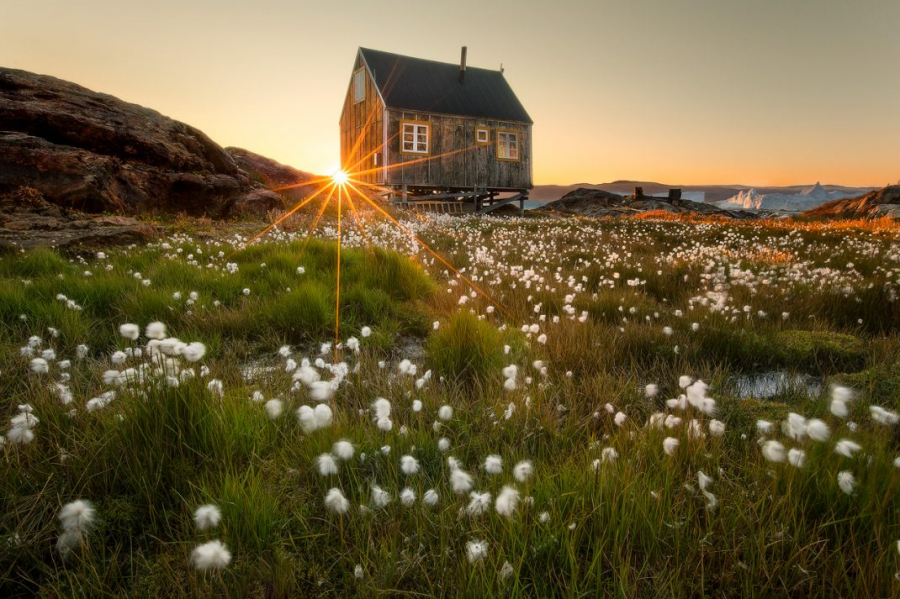
Summer also brings new life to the people of Greenland. It can be considered the busiest time of year. The further north you go, the longer the days become, with the sun shining even after midnight. People work harder, and children play without much regard for time. Summer is also the time for outdoor adventures, whether camping or canoeing on glaciers.
Summer experience
Greenland welcomes tourists year-round. Each season offers visitors different experiences. The freezing winters with snow and ice are perfect for hiking and skiing, while the summers, with their budding vegetation and warm climate, offer a wider range of activities.
Cycling to Russell Glacier
For cycling enthusiasts, the 25-kilometer route from the town of Kangerlussuaq to the Russell Glacier is an ideal journey. The trip offers an opportunity to explore the lush green scenery of summer. Along the way, you'll encounter many of Greenland's characteristic wildlife, such as musk oxen, hares, and snowy owls.
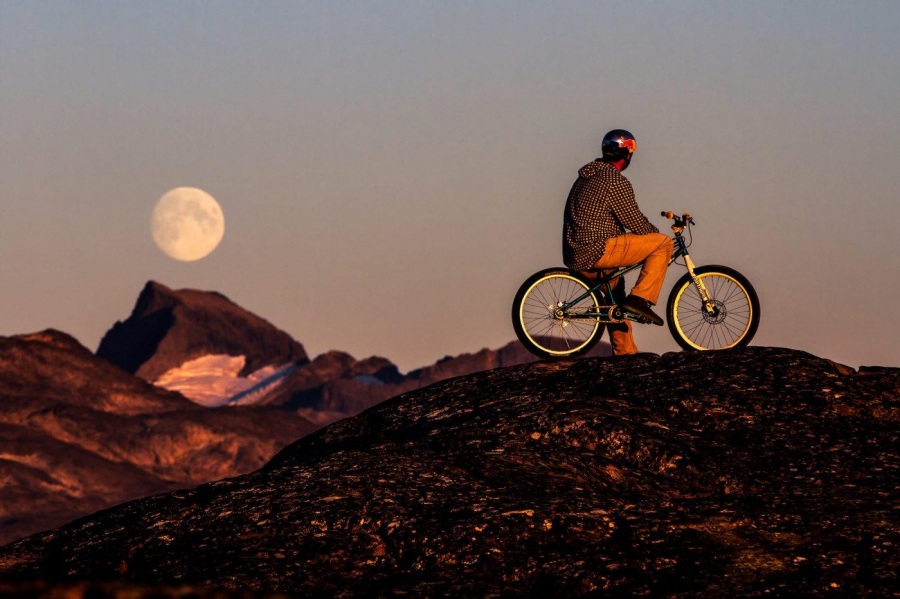
The full moon at sunset in Kangaamiut (photo: Mads Pihl)
The trip will be a tough challenge for cycling enthusiasts because the road will not be smooth or easy. However, it is an activity that does not require much expense, and there are many places in Kangerlussuaq that offer bicycle rental services.
Conquering Mount Ukkusissat
Greenland is a paradise for mountaineers. In Nuuk, those who conquer Ukkusissat peak are honored as true "Nuummioq" (mountain climbers).
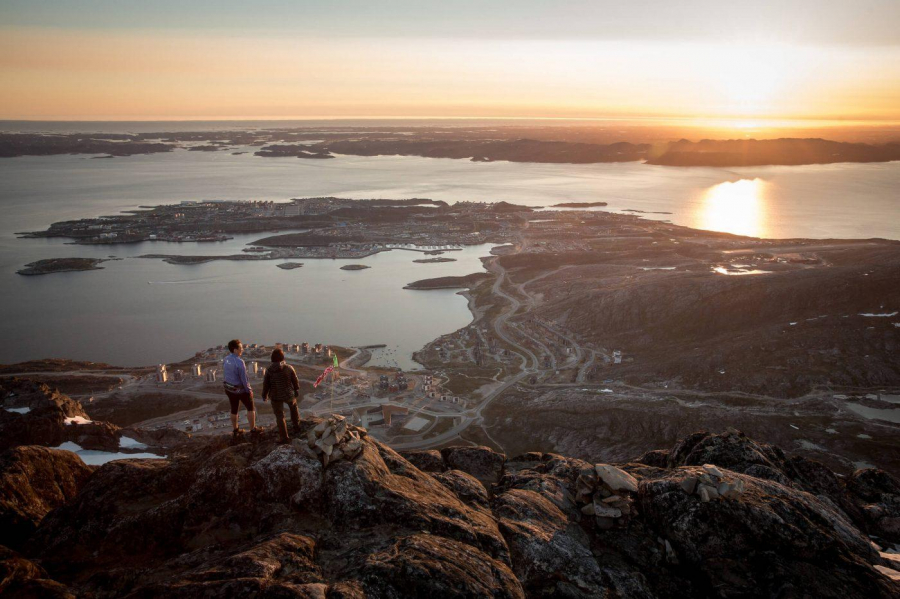
Mountaineers watch the midnight sun from the summit of Ukkusissaq-Store Malene in Greenland (photo: Mads Pihl).
A breathtaking view awaits those who manage to climb to the summit of Mount Ukkusissat. A small note for first-time visitors to Greenland: you will need a local guide to ensure safety during the climb.
Kayaking on Sermilik Glacier Bay
In southern Greenland, summer is the ideal time to enjoy nature by water. Head to the remote Tasiusaq region, where a vast, lush sheep farm sits atop a glacial bay, rent a small kayak, and explore the frigid waters and the blue-white icebergs drifting from the glaciers down to Sermilik Bay.
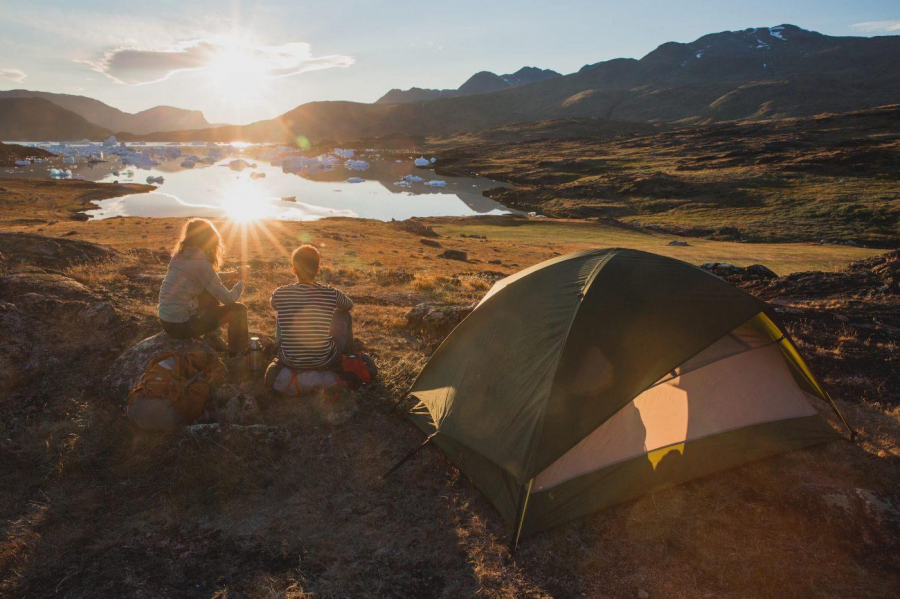
Tourists camp on the shores of Sermilik Glacier Bay (photo: Mads Pihl)
Conquer the Arctic Circle route.
Connecting the towns of Sisimiut and Kangerlussuaq is the more than 160-kilometer-long Arctic Circle. The road traverses diverse terrain, from tundra to narrow valleys, and passes along low mountain passes bordering deep lakes. The journey takes 7-11 days, so be sure to prepare camping gear for overnight stays. There are a few guesthouses scattered along the way, but locals aren't tech-savvy, so you won't be able to book rooms online or by phone.
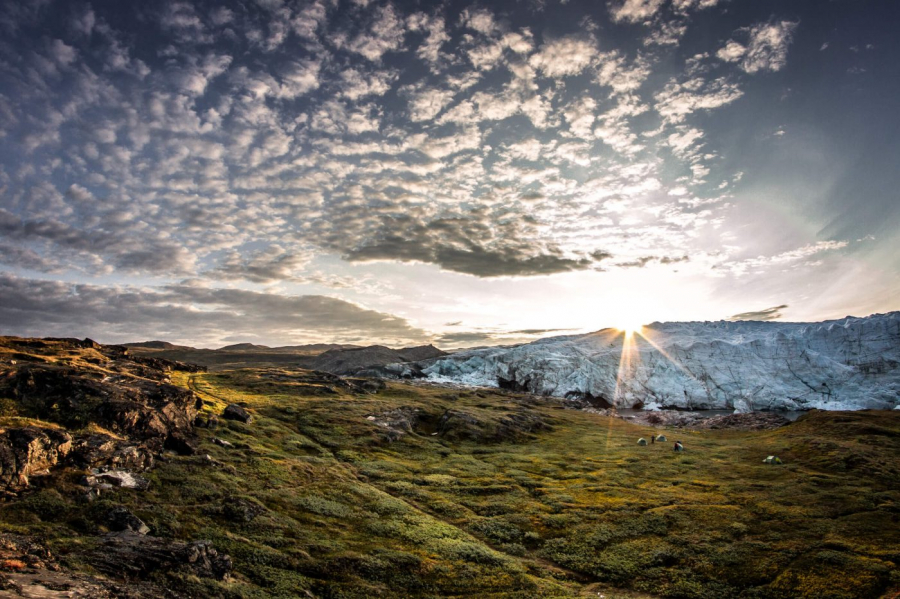
Icebergs on the Russell River at the same point as the Arctic Circle (photo: Mads Pihl).
Take a stroll around Ilulissat Glacial Bay
This is arguably the easiest experience to have when visiting Greenland. This UNESCO World Heritage site boasts the majestic beauty of its rivers. While this destination can be visited year-round, summer is ideal as it doesn't require as much safety equipment.
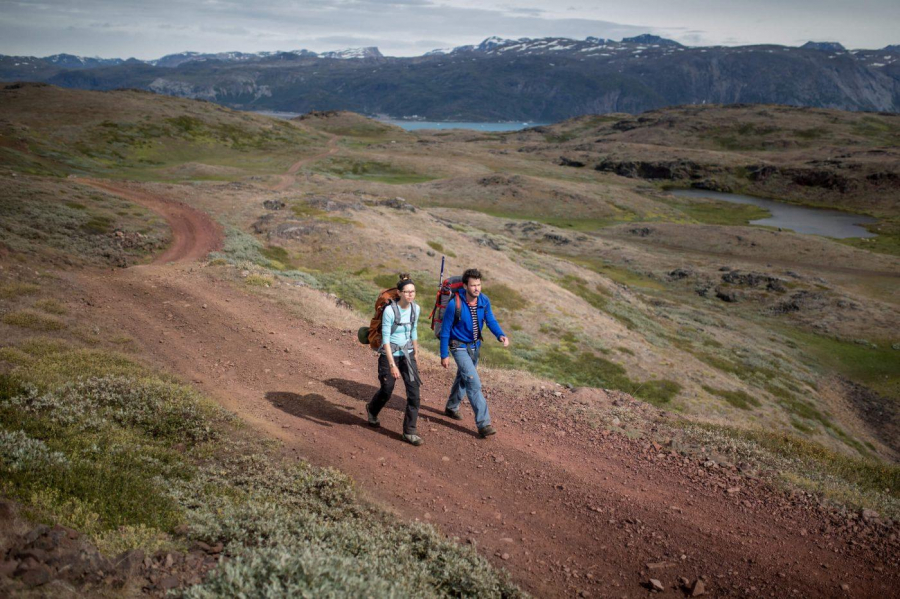
Photo: Mads Pihl.
Hiking behind the town of Tasiilaq
There are quite a few mountains to conquer in East Greenland, but the easiest to climb is the Qaqqartivakajik range, located just behind the town of Tasiilaq. The journey itself will certainly be easier than pronouncing the name of this mountain range.
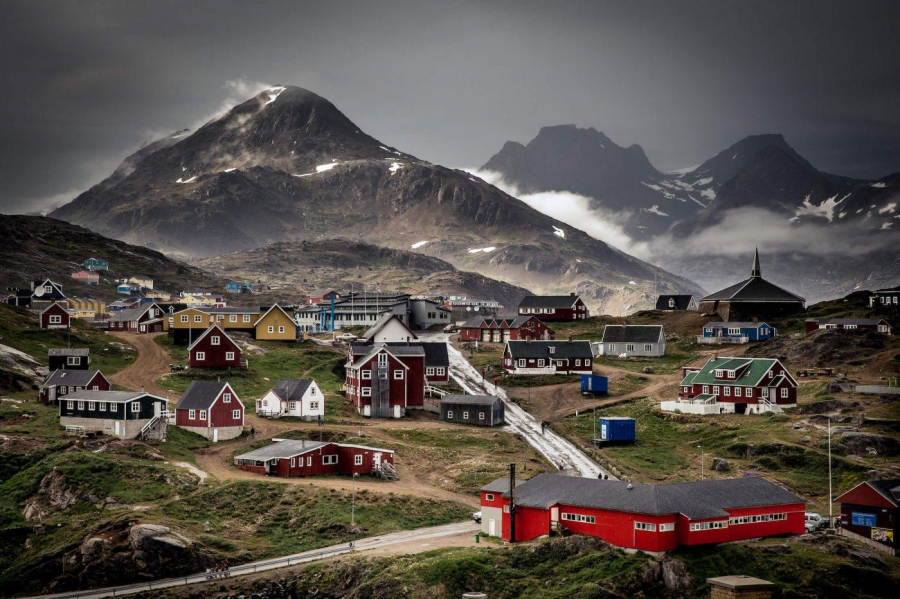
The town of Tasiilaq (photo: Mads Pihl).
Starting from the town of Tasiilaq, trek along the foothills to the first summit. From there, you can admire the impressive view of Kong Oskars harbor. Continue down the gentle slope to the second summit to see the Arctic Ocean. There are marked trails for easy navigation, but a map is still recommended. If you have trouble finding your way, don't hesitate to ask the locals; they are very willing to help visitors from afar.
Arctic trout fishing in Maniitsoq
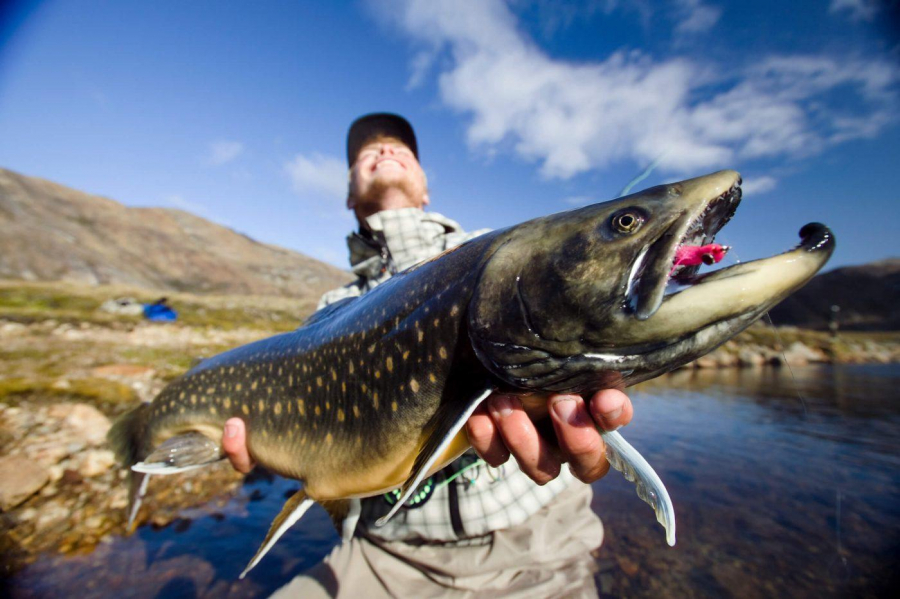
Catching Arctic salmon (photo: Peter Christensen).
There are many fishing spots in Greenland, but Mannitsoq is the most famous. It boasts lakes, rivers, and ice fjords, offering visitors plenty of scenic views. The Arctic trout season falls around July and August, making it the ideal time to go fishing.

 VI
VI EN
EN



